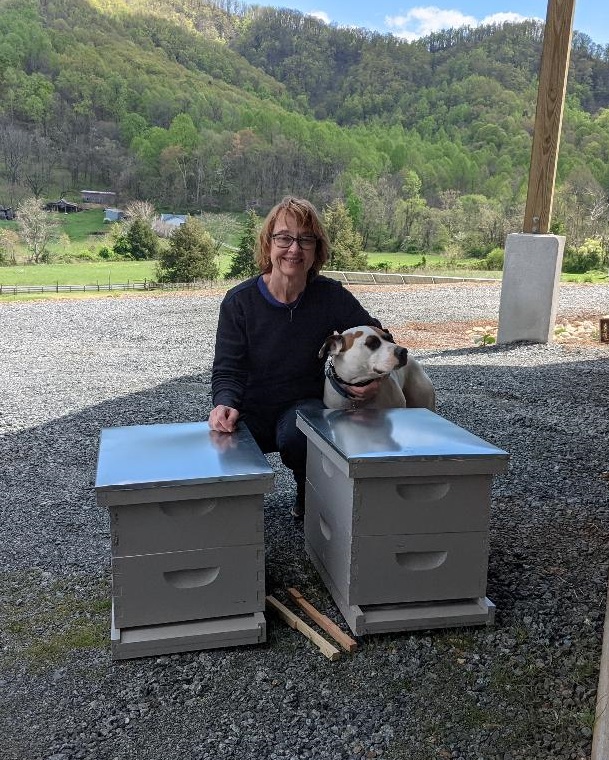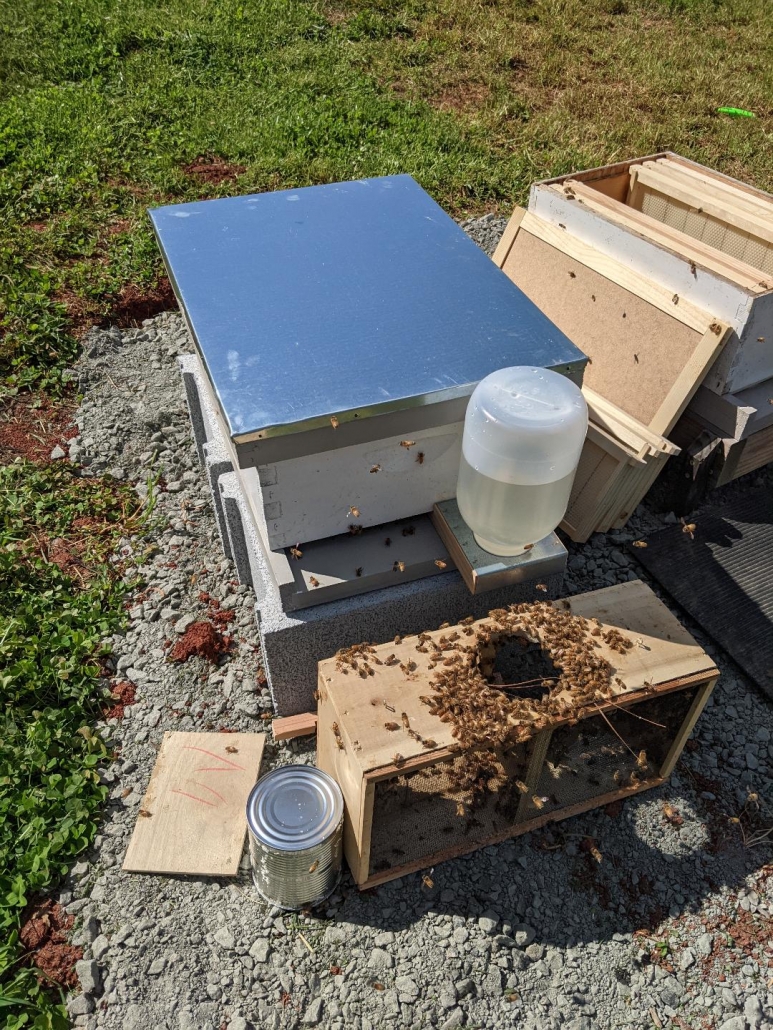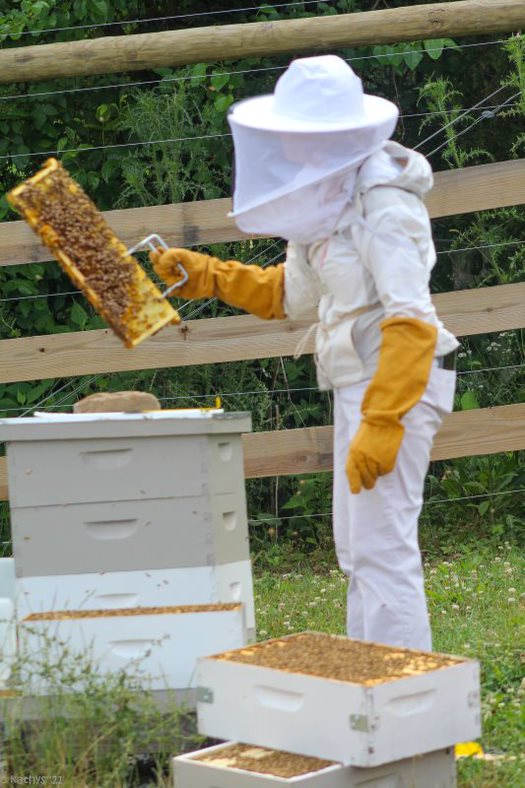Meant to Bee
We had planned to try our hand at beekeeping during our first year on the farm, but stayed busy establishing our grapes and apples, and with many other new tasks. This Spring, I was ready to dive in to this new and exciting hobby. Bees will help pollinate our garden crops. More generally, bees are essential to the global food supply. Approximately one-third of the world’s food production depends on bees. However, bee populations are in decline due to a number environmental factors (use of pesticides, climate change, diminished habitat). In addition to these important reasons to begin beekeeping, industrious bees provide us with a welcome extra gift —honey!
How does one get started in beekeeping? Thankfully, there are a lot of resources, and good people available to help. I joined the Nelson County Beekeeping group, a generous group of individuals eager to share their expertise and experience with me. There are countless books on the topic, as well as videos on YouTube.
To begin, I bought two bee “packages” from a local bee supplier. Each bee package contains approximately 10,000 bees, and one queen bee. In late April, I loaded the packages into each of two hives .
Two months later, my hives seem to be thriving, and I have added hive boxes (called “supers”) as each hive’s queen has laid thousands of eggs and the bees have expanded. At its peak, a bee hive may have as many as 80,000 bees. I have a long way to go in learning about these amazing creatures, but am enjoying the ride!


to their new home!





